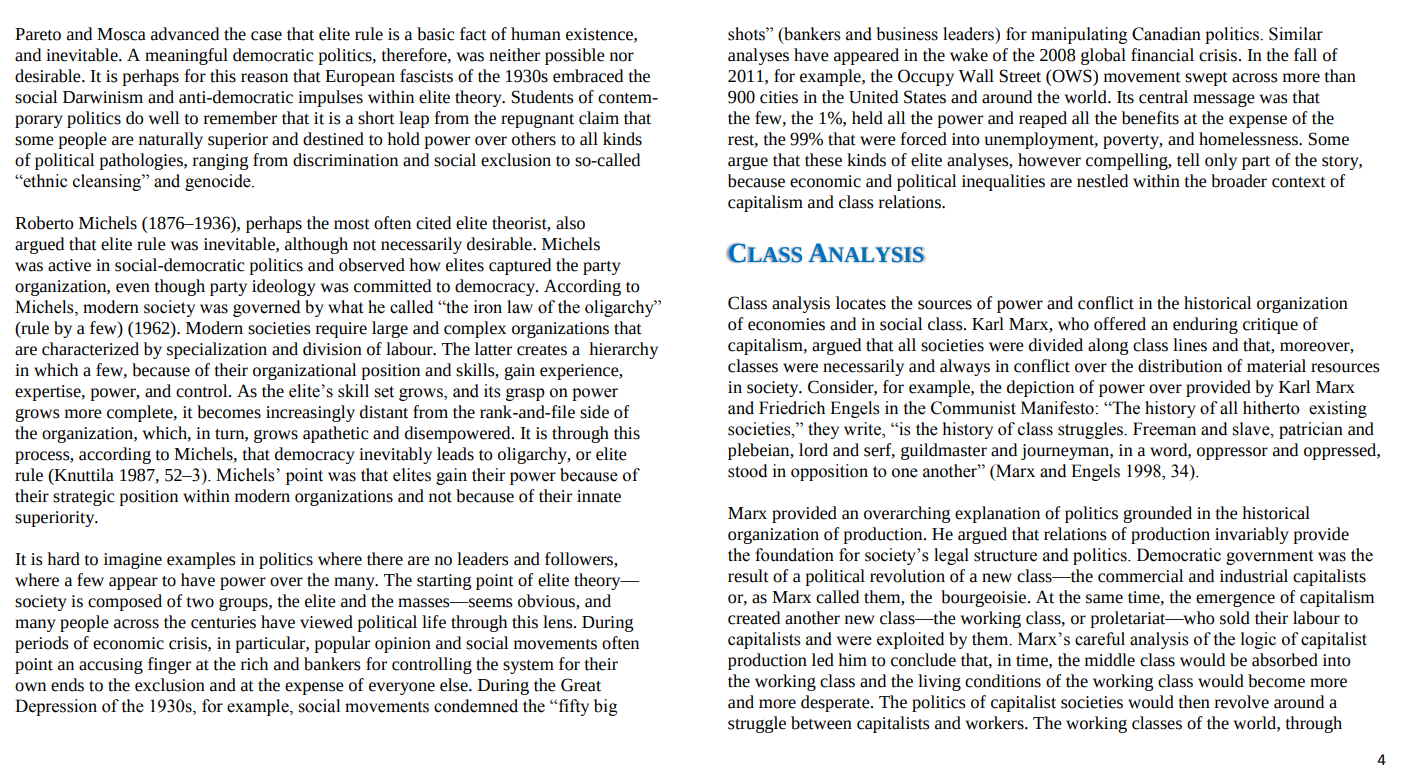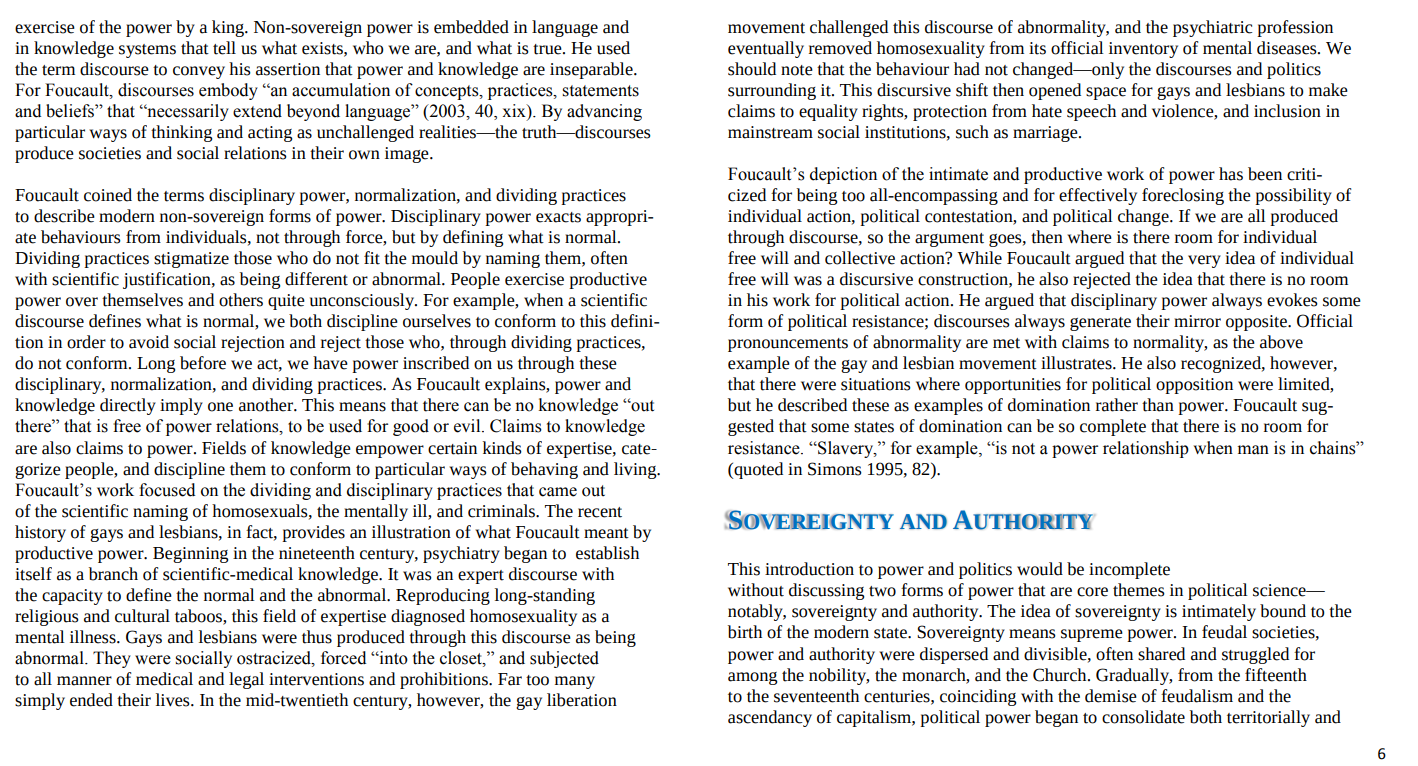This small essay by Janine Brodie called “Power and Politics” has several other issues, but their most frustrating one is their outright DISMISSAL of Marxist class analysis for the stupidest reasons. Economic determinism? I guess if you yearned to softly dismiss marx by misrepresenting him.
God I fucking hate poli sci majors.
The previous page:

The next one:

I’m not the brightest crayon in the box but is it just me or does Doctor Brodie somehow make politics and power some sort of vague, unsolvable mystery? Like fr I don’t want just an echochamber of nodding heads plz help am I in the wrong?
I need help putting words to my issues with it.

The author portrays an evolution of social and economic theory that passes from Marx to Weber to Foucault. In other words, Marx without Lenin. The tactic is diversionary rather than disinformative. Insofar as you will discuss Marxism, it will be in the context of critiques of Marx made by academics operating in capitalist countries. I don’t mean to say that Weber’s or Foucault’s theories are entirely wrong headed, just that as long as you are occupied with them you will be ignoring the strains of Marxist theory that have underpinned any actually successful Marxist political project.
If you want to pick nits though, this passage made me squint:
Here the author is stating without citation that Marx believed democracy was achieved by bourgeois revolution. Big if true. Perhaps a certain kind of democracy within a certain class? Where did Marx make this claim?